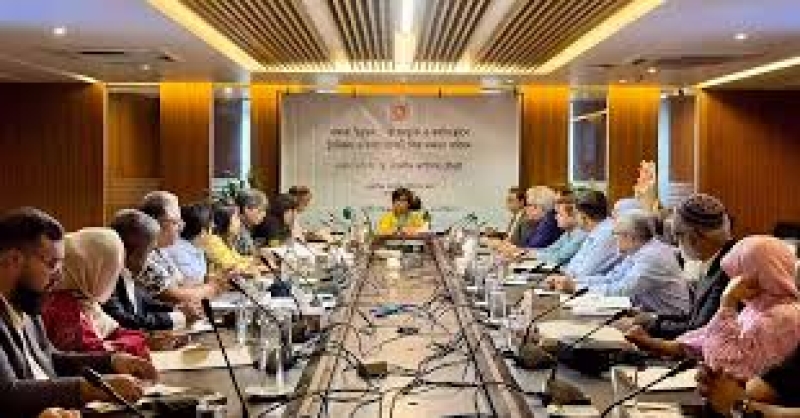- Middle East War Puts Bangladesh Jobs at Risk |
- Starmer criticises Trump, defends UK position not to allow use of its bases |
- Iran War: Nuke watchdog urges restraint amid ongoing strikes |
- 80pc tube wells in Chhatak run dry; water crisis acute |
- Advance Eid train ticket sale begins |
Govt seeks to build skilled manpower in tourism sector: NSDA

National Skills Development Authority (NSDA) Executive Chairman (Secretary) Nazneen Kausar Chowdhury on Monday said that the authority aims to integrate workers of the tourism and hospitality sector into decent and dignified employment through skills-based training and certification.
“We want to include the workers of the tourism and hospitality sector in dignified and decent employment through skill-based training and certification,” she said.
She made the remarks on Monday while addressing a stakeholder consultation titled “Skills Development, Industry Linkage and Employment in Tourism & Hospitality Industry Skills Council (ISC)”, held in the capital under the initiative of NSDA, according to a press release.
In this regard, she mentioned the issue of sustaining and increasing the capacity of the Tourism and Hospitality Sector Industrial Skills Council and taking activities in coordination with NSDA.
The executive chairman said that NSDA is working to create a quality skills ecosystem. Only when the Industrial Skills Council is strong, the skills ecosystem will move forward.
She sought the cooperation of the Industry Skills Council (ISC) in the industrial integration of apprentices.
She also said that the industries concerned can provide support through CSR funds like other countries of the world in forming a fund to strengthen the ISC.
Nazneen emphasised the need to make the Tourism & Hospitality ISC sustainable and capable, while also ensuring close coordination with NSDA to carry forward sector-specific initiatives.
“NSDA has been working relentlessly to build a quality skills ecosystem. Once the Industry Skills Councils are strengthened, the overall skills ecosystem of the country will progress further,” she said.
The executive chairman also sought cooperation from ISCs in facilitating apprenticeships and industry linkages, stressing that the tourism and hospitality ISC can play a vital role in bridging skills demand and supply.
She further suggested that like many other countries, industries in Bangladesh could support ISCs by contributing to their funds through Corporate Social Responsibility (CSR) mechanisms.
The consultation is part of NSDA’s broader engagement initiative with the 16 industry skills councils to align curriculum, learning materials, and assessment frameworks with sectoral demands.
Presided over by NSDA Member (Administration & Finance) and Joint Secretary Md Johar Ali, the event was attended as special guests by Tourism & Hospitality ISC Chairman Mohiuddin Helal, Vice Chairman Khabir Uddin Ahmed, and Secretary General Shahid Hossain Shamim. Senior officials of NSDA, directors, and members of the Tourism & Hospitality ISC were also present.
Speakers at the workshop underscored the importance of upgrading skills, enhancing capacity, and ensuring formal employment opportunities for workers in the tourism and hospitality industry.
They noted that if NSDA brings the sector fully under its training programs, Bangladesh could significantly increase foreign currency earnings, potentially reaching billions of dollars.
Industry representatives highlighted that the sector requires diverse categories of skilled manpower, including language experts and multi-skilled workers such as driver-cum-tour guides.
They stressed the need to address sub-skills within the sector, align training with Fourth Industrial Revolution (4IR) technologies, and introduce systematic feedback mechanisms from employers to continuously improve training quality.
They also agreed that integrating all types of skills development activities under NSDA’s umbrella would not only produce a skilled workforce but also help establish an internationally recognized skills ecosystem for Bangladesh.
The session concluded with participants offering policy-level recommendations and practical suggestions, which NSDA indicated could be incorporated into its future action plans, reports UNB.

